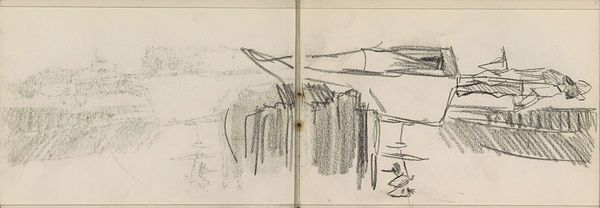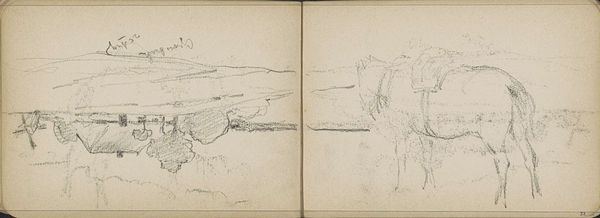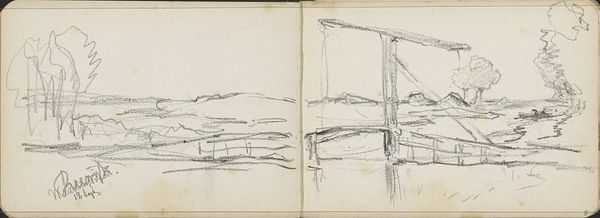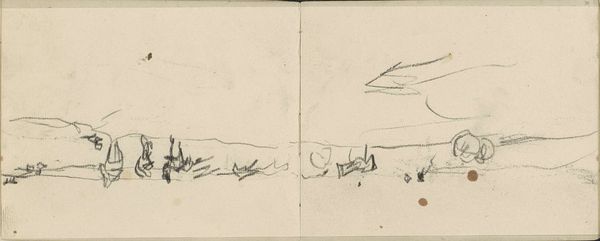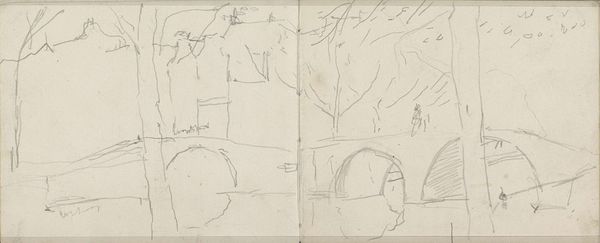
drawing, pencil
#
drawing
#
impressionism
#
landscape
#
pencil
#
realism
Copyright: Rijks Museum: Open Domain
Curator: Anton Mauve created this evocative sketch, “Landschap,” sometime between 1848 and 1888. Currently residing in the Rijksmuseum, it’s rendered in pencil. My immediate feeling is spareness. It's stark but not entirely bleak. What's your read? Editor: Well, initially, the composition seems less concerned with detail than with suggesting a feeling of openness, like a fleeting glimpse into a bare winter scene. The horizon is loosely defined, and the bare trees create an almost rhythmic pattern. Curator: That resonates. Considering Mauve’s social context, and the era’s growing urbanization, these landscape studies become almost political statements, implicitly valuing rural life at a time when it was under pressure. There’s a clear romanticization here. Editor: Yes, but the roughness of the sketch is also noteworthy. It resists easy consumption. It feels more like an honest attempt to grasp form and space, a formal exercise. The vertical lines create a strong sense of depth. It's reductive in a way. Curator: Precisely. And I would add that the "reductive" element connects to broader societal anxieties around industrial progress. Simplification becomes a subtle act of resistance. We see the legacy of Jean-Jacques Rousseau, even at this late date. The individual alone in nature as a form of political resistance. Editor: An intriguing claim, though the interplay of light and shadow within such a simplified composition fascinates me even more. It hints at an emotional landscape. Curator: Absolutely. The minimal strokes almost evoke a sense of loneliness and introspection; but also maybe strength—tenacity. This piece, for me, really does ask the viewer to actively engage, almost filling in the gaps both in the picture and in the sociopolitical narratives from that moment. Editor: For me, it’s a lesson in economy of means, demonstrating the power of suggestion and implication. A quick pencil study offering up surprising complexity. Curator: Well, looking through this lens offers the viewer ways into a deeper investigation, to see this "economy of means" as representative of the economic landscape facing artists working in the impressionistic style. Editor: True enough; though what stays with me most vividly is how stark lines can yield something profoundly felt, regardless of the narrative it calls to mind.
Comments
No comments
Be the first to comment and join the conversation on the ultimate creative platform.

